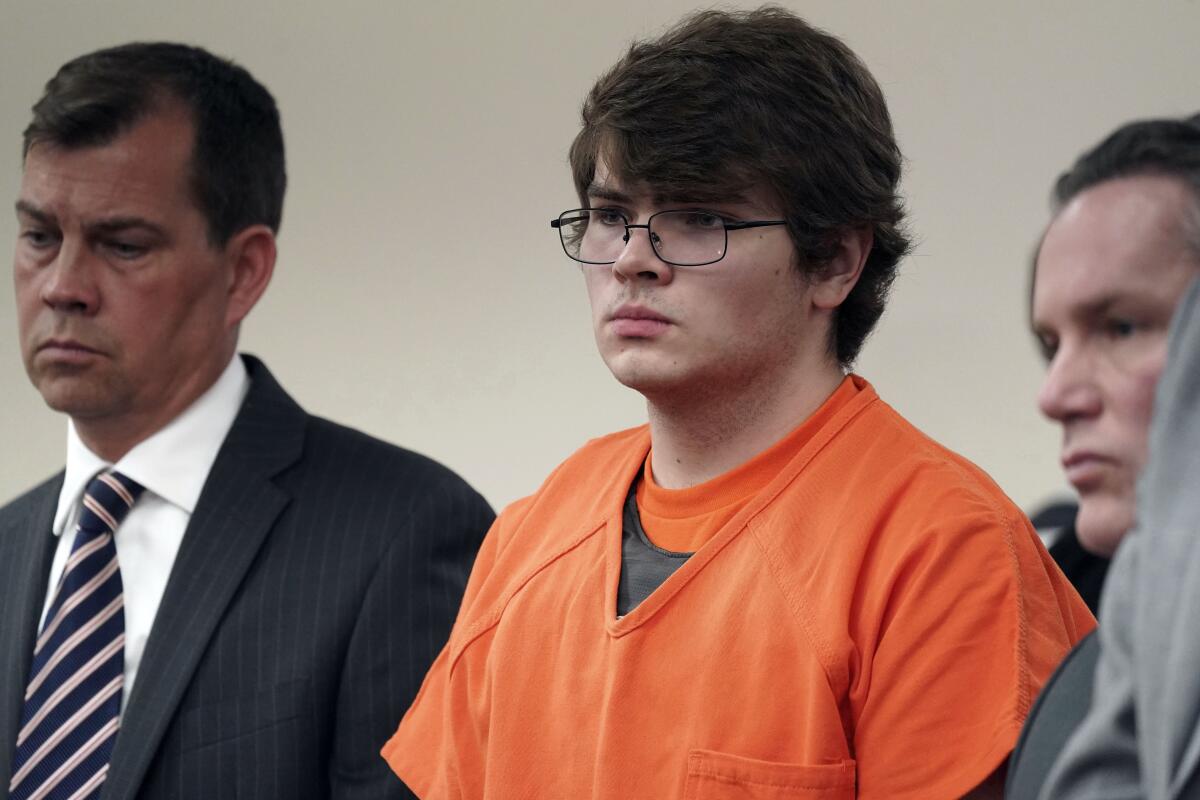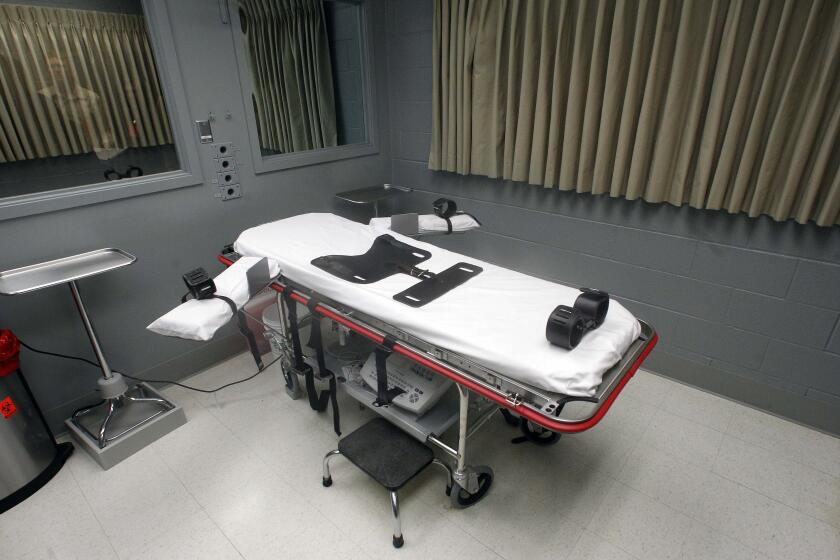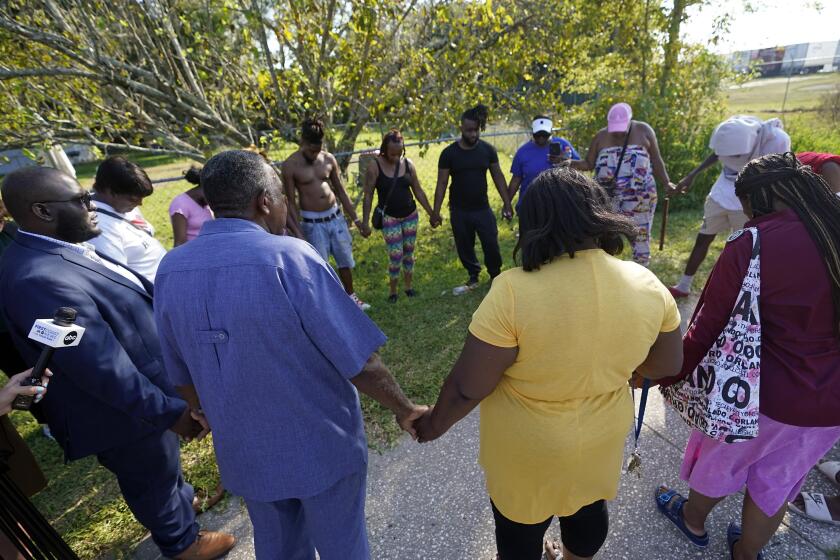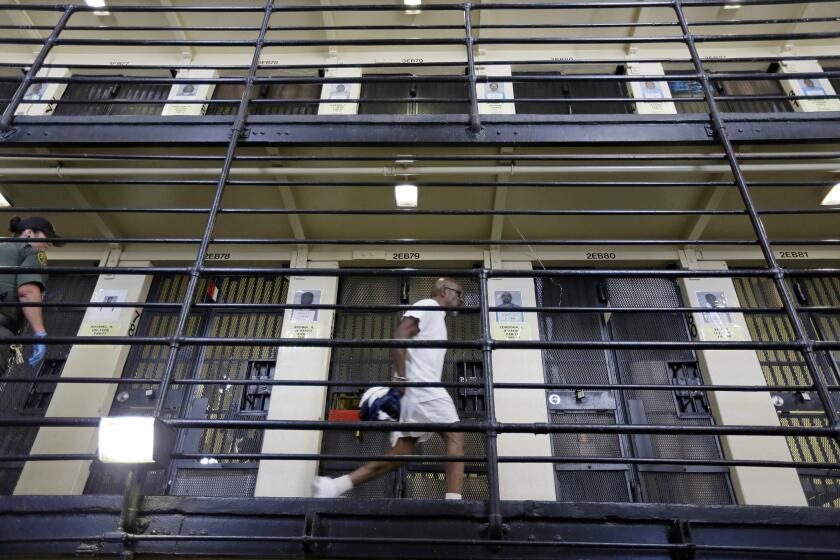Editorial: Buffalo mass killer should not be executed. What happened to Biden’s promise?

- Share via
The U.S. Department of Justice’s decision last week to seek the death penalty against the Buffalo, N.Y., supermarket mass killer continues the federal government’s vacillation on capital punishment.
President Biden purports to oppose the death penalty. He campaigned on a promise to stop federal executions and urged states to do the same. The Trump administration executed 13 people, after a half-century during which only three people in the federal system had been put to death. Five people were executed under Trump between his election defeat and Biden’s inauguration.
Seeking to execute accused Buffalo mass killer Payton Gendron would be to answer moral repugnance with moral repugnance.
Biden’s attorney general, Merrick Garland, temporarily suspended executions (as opposed to death sentences) pending “a series of reviews” and withdrew capital charges against more than two dozen defendants. Yet his department paradoxically asked the Supreme Court to reinstate a death sentence against Boston Marathon bomber Dzhokhar Tsarnaev, and federal prosecutors sought death in cases that had begun before Biden became president.
Now, notwithstanding Biden’s declared rejection of capital punishment, the Justice Department is seeking a death sentence against Payton Gendron, who murdered 10 people in a racist, premeditated shooting spree at Top’s Friendly Market in a Black neighborhood in Buffalo on May 14, 2022. Gendron said he was motivated by the far-right “great replacement” conspiracy theory that white people are intended victims of a plan to supplant them with immigrants and others.
Florida jurors and Oregon’s governor were unlikely heroes in the fight against executions last year. But elsewhere the death mill continues to grind.
The same theory has motivated several other mass killings, including two in 2019 — an El Paso shooting targeting Latinos and resulting in 23 deaths, and an attack in Christchurch, New Zealand that killed 51 Muslims.
It is difficult to muster sympathy for any murderer or white nationalist domestic terrorist, including Gendron, notwithstanding his youth (he was 18 at the time of the shooting) and susceptibility to racist extremism in which he apparently steeped himself. Abolishing the death penalty has nothing to do with feeling sympathy for cruel killers or denying closure to victims’ loved ones.
This country is exactly the place for hateful, murderous, suicidal gun violence, because this is the place for millions upon millions of guns and the bizarre American delusion that the more of them we have, the safer and freer we are.
The death penalty is wrong because killing as punishment is wrong, no matter how repugnant the crime. Some nations still impose particularly cruel sentences, like torture and dismemberment, that should have no place in any modern, civilized society. The U.S. correctly rejects those unacceptable punishments, yet it continues to put people to death.
By embracing capital punishment, the U.S. stands apart from every European country besides Belarus, which is hardly impressive company. Around the globe, only China, Iran, Saudi Arabia and Egypt put more people to death each year than the United States, when state as well as federal executions are tabulated (totals are unknown in North Korea, Vietnam, Syria, and Afghanistan). These are not nations envied for the quality of their justice systems.
Bangladesh, India, Pakistan, Indonesia and Thailand sentence more people to death, but carry out those sentences less often than the U.S. Even Russia, which still has the death penalty on its books, has had a moratorium on executions since 1996.
There’s no better example of the death penalty’s randomness than the case of Richard Glossip in Oklahoma, who even the district attorney says was denied a fair trial. But he’s still slated for a May 18 execution.
In the U.S., nearly half the states have rejected the death penalty. California and eight other states still sentence people to death but don’t actually kill them. Executions occur only in eight former Confederate or slave-holding border states, plus South Dakota and Nebraska. And in Terre Haute, Ind., where the Trump administration reopened the federal death chambers. And where the Biden administration is asking to send Gendron.
We may not know the motive for the Monterey Park attack amid Lunar New Year festivities, but we know how the mass killer committed his act: He had a gun.
Gendron has already been sentenced in New York state court to 11 consecutive life sentences without the possibility of parole.
Department of Justice policy permits prosecutors to seek death for “crimes causing the most harm to the nation.” That guideline is so subjective that it exacerbates the randomness of the death penalty and makes it less an instrument of justice than a distortion of it.
Good riddance to California’s death row, a gruesome holding bin that said at least as much about our failed response to murder as it did about the killers themselves.
If the nation is sufficiently harmed by a brutal multiple killing to warrant executing the killer, how do we punish the next act that is even more deadly? Trump’s vice president, Mike Pence, offered an answer of sorts last year: Kill perpetrators more swiftly. It’s quite a notion coming from a man who hunkered down in a Capitol garage on Jan. 6, 2021, while people outside shouted “hang Mike Pence” and erected a makeshift gallows.
Quicker and more prolific executions are hallmarks of authoritarian regimes such as China, whose expedited executions Trump praised. In the U.S., it’s time for Biden to keep his promise to end the federal death penalty and align the U.S. with nations that respect law, justice and human life by doing away with the archaic cruelty of death sentences and executions.
More to Read
A cure for the common opinion
Get thought-provoking perspectives with our weekly newsletter.
You may occasionally receive promotional content from the Los Angeles Times.
















